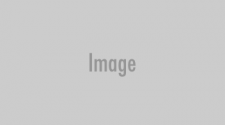Big Jay Oakerson (of the Legion of Skanks) takes part in SiriusXM host Ron Bennington’s annual Thanksgiving Special at Hard Rock Cafe on Nov. 14, 2017, in New York City.
Cindy Ord/Getty Images for SiriusXM
If you were in New York City during the fourth weekend of June and had a hankering for the comedy stylings of Shane Gillis, you could’ve found him at Skankfest. An outgrowth of the Legion of Skanks podcast hosted by comics Luis J. Gomez, Dave Smith, and Big Jay Oakerson, Skankfest was a three-day festival featuring dozens of stalwarts of the New York club scene, drawing fans from across the country to a weekend of comedy and debauchery in Greenpoint’s Brooklyn Bazaar. (The Stand, in Manhattan, also hosted programming.) Presuming you bought a pass in time—they sold out more than a month in advance—you could have had the privilege of witnessing Ari Shaffir tear down his pants and play his genitals like a puppet as a panel of comics dared Gomez to fellate him.
You could have seen podcaster Zac Amico proudly claim he once hated his freshman roommate’s girlfriend so much that two years later he “got one of her roommates to blow me and spit my cum into her face lotion.” You could have seen comedian Jamie Kilstein apprehensively clarify, mid–roast battle, that the predatory behavior he’s been accused of does not include rape. (Kilstein has said that “a good majority” of a Jezebel article about the accusations “wasn’t even fucking true” and recently told a conservative host that, at worst, his behavior qualified him as “an asshole.”) You could have seen Saturday Night Live co–head writer Michael Che, whose famously contentious relationship with critics reached a new zenith this year when he wrote that Uproxx critic Steven Hyden “sucks off dogs” in a series of Instagram posts. And, most tantalizing of all, you could have seen disgraced comedian Louis C.K. walk onstage to rapturous applause.
Skankfest is just one comedy festival, and the Skanks are just one comedy group, but they represent a powerful constituency in modern comedy. Until this year they hosted the festival and recorded their show at the Creek and the Cave, a Queens venue commonly regarded as an incubator and hub for countless comics whose photos line its walls: Che, TJ Miller, James Adomian, Donald Glover, Michelle Wolf, the Lucas Brothers. They left the Creek in May, following community backlash over their decision to book Milo Yiannopoulos on the podcast. That controversy was true to form for the Skanks, who embody a school of unapologetic, anything-goes comedy that still dominates club stages across the country. You can see its adherents nightly at the Stand, Comic Strip Live, Gotham Comedy Club, Helium, the Comedy Store, the Comedy Cellar—almost anywhere stand-up is found. You can even find some of them on more mainstream platforms, like Comedy Central and Netflix.
But mostly they make their homes in podcasting, livestreaming, and radio, putting out hours of content each week for their dedicated fan bases and generally featuring their like-minded friends. One frequent guest on Legion of Skanks is Anthony Cumia, the shock jock fired by SiriusXM in 2014 over a series of viciously racist tweets. Today he runs the podcast network Compound Media, home to the Gillis-hosted A Fair One. Until two years ago, another member of the Compound Media family was far-right luminary Gavin McInnes, who recently appeared on comedian Tim Dillon’s podcast—a production of GaS Digital, the Gomez-run network that is also home to Legion of Skanks.
Sources inside SNL told Variety last week that, in hiring Gillis, the show was explicitly looking to add a comic who would “appeal to more conservative viewers.” But Gillis’ isn’t the mass-market, family-friendly conservatism of Jeff Foxworthy or Sebastian Maniscalco or dozens of inoffensive network sitcoms. It’s rooted in the scene he belongs to, a community bound less by love of small government or Christian values or the nuclear family than by cruelty and misogyny and grievance. It’s a world in which rape jokes are common currency, where slurs are just a normal part of the lexicon. Its members don’t have the critical acclaim or high profiles their work might have earned 20 years ago. They’re not starring in TV or movies; they’re not headlining Madison Square Garden; only a few have released specials on Netflix, Comedy Central, or HBO. What they do have are their own platforms, their own fans and subscribers, and a hearty contempt for the industry that’s passed them by even as they form the backbone of its oldest institution: the comedy club.
To work in comedy today is to know too well how much Gillis and his ilk dominate the club scene. Maeve Higgins wrote in the New York Times last week that Gillis’ now-infamous comments were “just a slice of classic standup, nothing strange or startling to any of us who are used to being the butt of jokes.” Guy Branum wrote in Vulture two years ago, following Louis C.K.’s downfall, that the boys’ club embodied by the Comedy Cellar is “the only real structure that exists in stand-up.” We are ostensibly in a boom defined by the blossoming of radical, alternative, queer, and feminist work. Yet by creating avenues for comedians to succeed outside traditional structures without fundamentally challenging them, the boom has inadvertently left those structures untouched in all their regressive splendor.
Meanwhile, the comedians who can remain within those structures use the tools perfected by the people they force out to build up their own fan bases, consolidating the form’s most reactionary elements into a thriving comedy ecosystem. And it’s mostly gone unnoticed from the outside. Media consumption today is so plentiful and so specialized that it’s easy to never encounter comedy outside your own tastes. So if you live outside the big comedy markets, don’t frequent clubs, and listen only to Earwolf and Forever Dog, you can go your entire life without once hearing about the Legion of Skanks. That also means comedians can forge whole, quite successful careers within walled gardens where the ones who engage in bigotry and hate speech face no meaningful repercussions. It’s no wonder they react so virulently when the outside world takes notice.
SNL’s hiring of Gillis was not the first effort by mainstream gatekeepers to go after right-leaning audiences newly animated by the Trump era. Just last month, MTV tapped Maniscalco, an arena-headlining comic the New York Times’ Jason Zinoman described as “a PG version of Andrew Dice Clay,” to host the Video Music Awards. It was a tame, forgettable affair featuring riffs about triggering and safe spaces—not jokes so much as keyword-rich text. MTV’s sister network Comedy Central recently launched a new late-night talk show, Lights Out with David Spade, whose mandate to avoid politics altogether is a clear play for viewers unserved by the network’s liberal fare.
Executives pursuing this strategy are doomed to run into one little problem, however: Conservatism has changed. The polite mask has dropped to reveal the throbbing id beneath. Last year ABC revived Roseanne, hoping to tap into a demographic hungry for stories about white working-class Americans, then had to kill off the show’s main character after its star’s racist tweets. A few months later, Just For Laughs named YouTube star Darren Knight a Comic to Watch, only to discover the guy famous for his “Southern Momma” character has reactionary views about race and gender. In 2016, stand-up comic and Inside Amy Schumer writer Kurt Metzger wrote a series of unhinged posts lambasting rape survivors who don’t go to the police after a fellow comic was banned from Upright Citizens Brigade over rape allegations. Today you can find his new podcast on GaS Digital; Episode 2 features Mike Cernovich.
This is a world whose social norms are decades in the past, populated with comics emboldened by growing digital audiences for reactionary speech. Gillis, who came up in the Philadelphia comedy scene before moving to New York and becoming a regular on GaS Digital shows, is fixated on Asian people, Islamophobia of various stripes, people with disabilities, and woke culture. In February, the Skanks devoted a segment to Aaron Philip, the first black transgender model with a disability to sign with a major agency. “It’s tough to be fabulous when you shit in a bag,” Oakerson says, affecting an effeminate voice. (He also regularly plays exaggerated black characters—including one called “Black Baby”—taking the opportunity to make use of the N-word.)
Conservatism has changed. The polite mask has dropped to reveal the throbbing id beneath.
In 2018, they helmed a slur-laden segment roasting a young nonbinary person’s vlog about coming out. A few years before that, Gomez quipped that a teenage America’s Got Talent contestant was “particularly unfuckable for a 13-year-old.” In August, they were joined by Aaron Berg, who went on a long rant about trans people that ends with him singing “trannies must be stopped.” (The episode has since been removed from the web, perhaps because the other guest is Gillis.) Berg and Geno Bisconte, meanwhile, host Compound Media’s In Hot Water, a show whose segments have included “Rape of the Day,” “Random Rape Threat Generator,” “ISIS Faggot,” and various Asian caricatures played by Berg. These are all familiar tunes: bitterness, hatred, resentment, an unshakeable conviction it’s society that’s backward. When Compound Media founder Cumia hosted Alex Jones in 2018, he opened by saying, “We were just discussing the perversion that goes on in Hollywood. They are insane over there, every day another story of insane perversion.”
I draw these Pepe Silvia–style connections not to cancel these comedians or suggest they be censored, but to illustrate precisely how deep stand-up’s institutional rot is, and why it matters when these figures are given the validation of a large mainstream platform. Many comics would like us to believe they are truth-tellers, but also that they are just joking, and we are fools to take any of it seriously. But in reality, unserious speech has the same power as serious speech. A friend told me last week that since Dave Chappelle dismissively deployed the term “alphabet people” in Sticks and Stones, he’s observed an uptick in its use as a derisive reference for the LGBTQ community—and indeed, an unscientific Twitter search for the phrase before and after Aug. 26 shows a spike. Does that mean Chappelle should not joke about whatever he wants, for fear he might mainstream a new slur? No, but it means that people are listening, and if Chappelle doesn’t care about that, we should.
Stand-up is the art of using what you believe to interrogate what you experience, and vice versa, in the pursuit of original insight. The catch is it’s self-taught: You have to bring beliefs to the table, and you have to be willing to part with them. There are plenty of role models, but no one can teach you how to mediate between your competing selves. What they can show you is how to plug your observations into familiar structures that reliably make people laugh. Anyone who puts in the work can master this, the art of telling jokes without ever thinking new thoughts. And that’s as it should be: Comedy does not have to be novel to be funny or worthwhile.
Still, Chappelle’s case is illuminating. Somewhere along the line, he stopped questioning his prejudices and descended into reactionary ideology. C.K.’s recent material suggests the same trajectory. It’s no surprise they share ground with the burbling subculture of comedians who got where they are without ever meaningfully interrogating themselves in the first place. Criticize them, and they’ll throw up the golden rule: Funny is funny. If people laugh at a joke, the joke was worth telling. Gomez recently suggested he’d have no qualms booking Nazis on a podcast for the sake of comedy. “If it was genuinely fucking Hitler,” he said, “it would be interesting as fuck if we could make it funny.”
Treating “funny” as an unqualified good, no matter who or what is the butt of the joke, explains just about everything: the overlap between club comedy and reactionary podcasts, the coziness with the alt-right, SNL hiring a comic for his red-state appeal and firing him when that appeal became a liability. They’re of a piece, linked by the nakedly capitalist belief that products are justified by demand—that if people laugh at a joke, you were right to tell it. (Chappelle, at least, once believed otherwise.) Never mind that the product pollutes. Never mind that the joke is cruel. If you don’t like it, don’t watch it. If you don’t watch it, it can’t hurt you. What, this swelling mass of people who hate you? Don’t mind them. They’re with us. We’re in the business of giving people what they want, and business is booming.



















